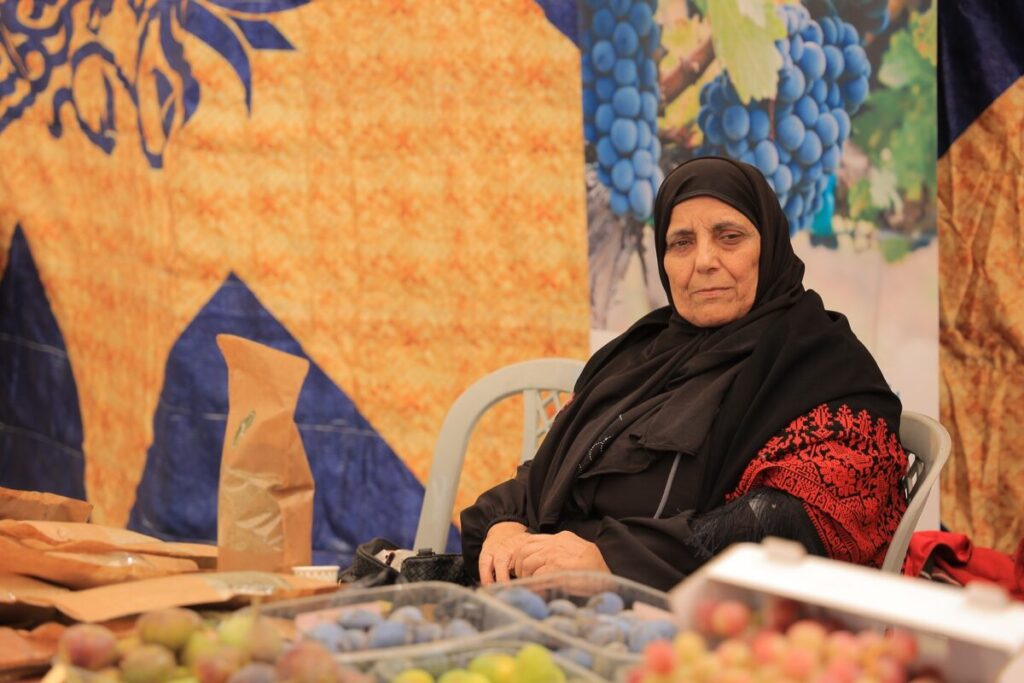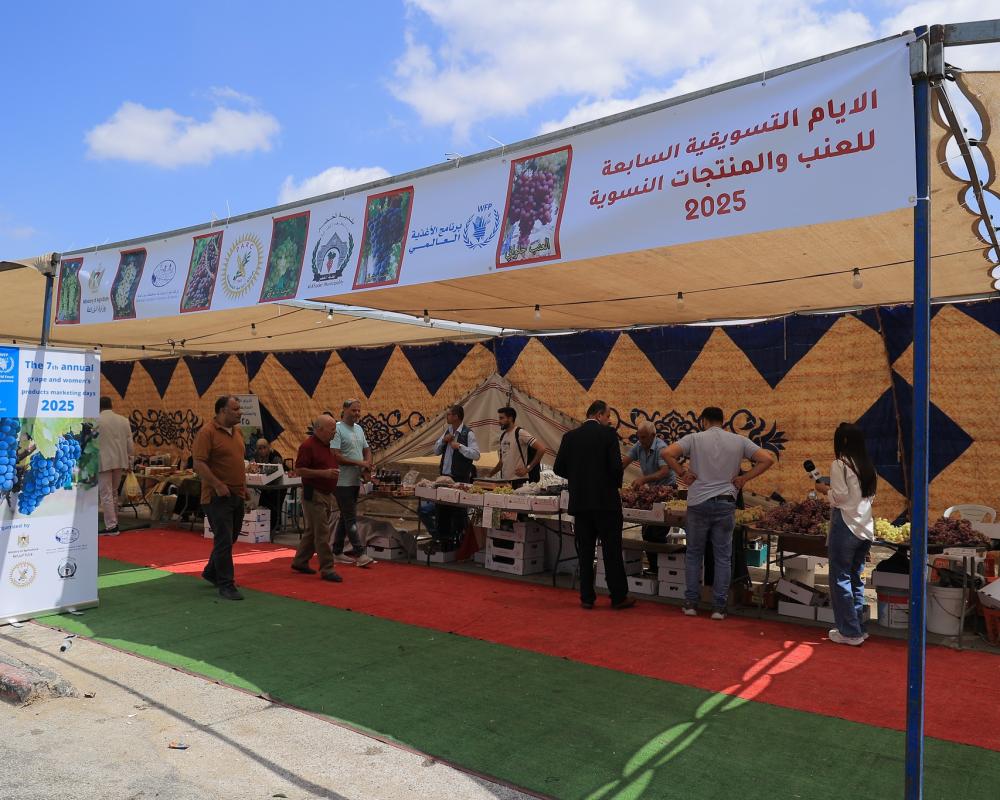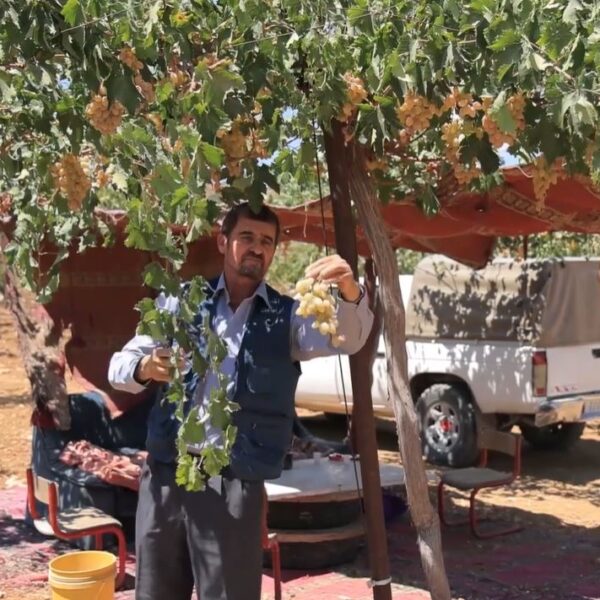The Al-Khader grape market is a market like any other yet different in its purpose. Organized once a year, it is part of a series of local initiatives aimed at supporting Palestinian farmers. Born from a partnership with the Bethlehem Chamber of Commerce and the Ministry of Agriculture, this temporary event allows producers to sell their harvests directly and to preserve an agricultural activity weakened by political and economic constraints.
AI Index: Mediterranean Knowledge Library
Precious, the annual market of Palestinian grape producers
22-med – October 2025
• In Al-Khader, near Bethlehem, a temporary market allows Palestinian vintners to sell their production directly.
• A local initiative that strengthens agricultural resilience in the face of land access restrictions and Israeli competition.
#palestine #agriculture #economy #resilience #mediterranean #market #viticulture
In Al-Khader, between Bethlehem and Hebron in the south of the West Bank, vintners and farmers cultivate some of the best Palestinian grapes. However, they face increasing difficulties throughout the year. Restricted access to agricultural land, as well as irrigation which is becoming scarce, blocked by Israeli settlers. Yet, an even greater challenge arises during the harvest when marketing their production becomes almost impossible.
Plummeting yields
Jaafar Assi, a 52-year-old farmer, notes that this year's harvest has decreased for several reasons, mainly the restrictions on access to agricultural land. “We are facing harassment from the Israeli army, while settlers let their sheep graze in our vineyards, uproot vines, and block access roads,” he denounces. “As a result, we have gone from ten dunams (about 1 hectare) of crops to only two.”
Mahmoud Salah, 55, heads a local farmers' association. He explains that the vintners of Al-Khader have long been excluded from their main market in Jerusalem, which was closed to them years ago. Palestinian markets, he added, are weak and offer little protection for local agriculture. “And the Palestinian Authority has left the market wide open, making Israeli grapes significant competitors,”.
For Assi and Salah, another farmer, the problem also lies in the drop in yields. Assi can only observe that he now produces only 20% of what he used to, while Salah recalls that the village of Al-Khader, which could once exceed 8,000 tons of grapes per year, barely reached 2,000 tons last year. He explains this decline by the political and economic pressures faced by the residents of the West Bank.
The ephemeral market offers a lifeline
In response, farmers have turned to the Agricultural Relief Association for help in marketing their production. Working with the Bethlehem Chamber of Commerce, the Palestinian Ministry of Agriculture, and the municipality of Al-Khader, the association has set up a temporary market to support producers.

For three days, dozens of farmers and local officials gathered in a large tent set up next to the main Bethlehem-Hebron road. Visitors were able to discover traditional grape-based products such as molasses, raisins, and jams in a festive atmosphere.
While farmers welcomed the initiative, they emphasize the need to organize more actions to support their efforts and ensure long-term access to markets. Rizq Salah, speaking on behalf of the producers, urged the attending politicians to ease restrictions on the sale of grapes. Farmer Raqiya Salah, who came to sell her harvest at a stand, called for the multiplication of such markets throughout the West Bank.
“A shield against exploitation”
Ziad Salah, head of the Agricultural Relief Association in Bethlehem, reminds that the market was designed to strengthen farmers' resilience. “By allowing direct sales to consumers and small traders, we have helped farmers avoid low-price purchases by intermediaries who dominate the grape trade,”.
He adds “that the market offered residents the opportunity to buy high-quality grapes at affordable prices during times of economic hardship.”
The mayor of Al-Khader, Ahmad Salah, emphasizes the importance of official support. “Without this support, farmers cannot withstand land confiscation, physical assaults, crop destruction, and access restrictions imposed by settlers and the army,” he notes. He also points out that nearly one hectare of the village's land is planted with grapes, providing a vital supply for the central and southern districts of the West Bank. However, farmers now only have access to a quarter of that land, further weakening the village's agricultural economy.
Push from the Chamber of Commerce
Dr. Samir Hazboun, president of the Bethlehem Chamber of Commerce, Industry, and Agriculture, emphasizes that efforts are underway to promote grapes through media campaigns and new marketing strategies. “Partners are working to go beyond seasonal events to provide ongoing support. This ranges from equipment to pesticides, not to mention marketing actions to highlight women's cooperatives.”
“One of the main demands of farmers,” he notes, “is the prohibition of grape imports during the Palestinian harvest. The message to the Palestinian government is clear: stop imports until the end of the grape season, otherwise our farmers will continue to lose.”
Tangible results
The observation is clear. Grape cultivation is viable and profitable when everything is put in place for its marketing. At the end of the three-day market, Hazboun announced that farmers had sold 16 tons of fresh grapes on-site and secured contracts for an additional two tons. They also sold 275 liters of grape molasses, 410 kilograms of malban (a grape candy), 44 kg of raisins, and 41 liters of grape vinegar.
The sales revenue reached 152,820 shekels (about €38,700), with over 2,000 visitors present despite difficult political and economic conditions. For the President of the Chamber of Commerce, “these figures demonstrate the community's commitment to supporting farmers and strengthening their resilience.”
“The Bethlehem grape market, or what we call the ‘marketing days,’ has become an annual tradition to promote the economy of grape-based products,” emphasizes Hazboun. “It is also a tool to draw the attention of Palestinian society to the need to support farmers' resilience by purchasing their products during these events.”

Photo of the Day: In Al-Khader, vintners and farmers cultivate some of the best Palestinian grapes © DR
